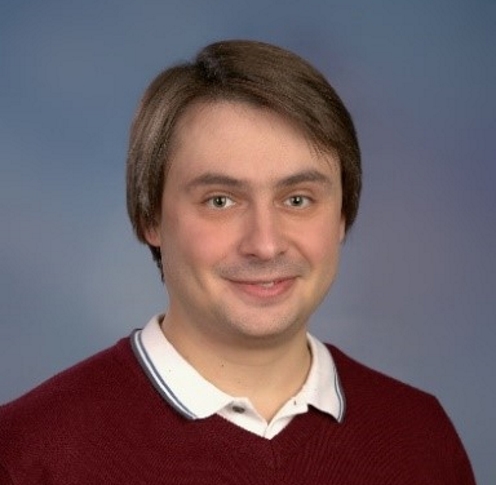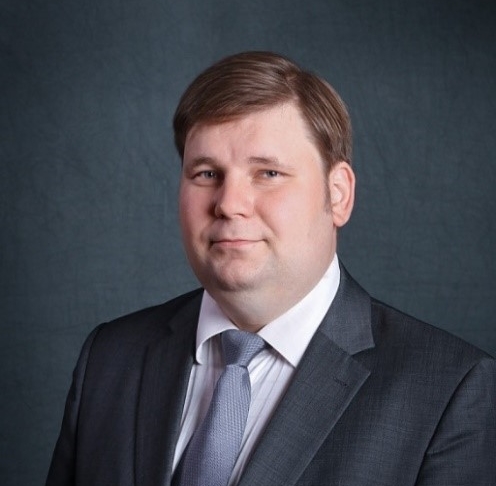Program
Program and Schedule
Conference schedule and program can be dowloaded in PDF format:
Program
| Monday, June 4 | |
| 15:00 - 15:15 | Transfer from Astor Riga Hotel to Transport and Telecommunication Institute |
| 15:30 - 15:45 | Welcome coffee at TTI |
| 15:45 - 16:15 |
Welcome speech and presentation about TTI Vice-Rector for Science and Development Affairs, Professor, Dr.Sc.Ing. Irina Yatskiv |
| 16:15 - 16:45 |
Keynote: “Simulation as a decision support tool” Dean of Computer Science and Telecommunication Faculty, Mihails Savrasovs |
| 16:45 - 17:15 |
Excursion at Transport and Telecommunication Institute
|
| 17:15 - 17:45 | Coffee, cooperation discussion and photo |
| 17:45 - 18:00 | Transfer from TTI to Astor Riga Hotel |
| 18:00 - 20:00 | Welcome Reception and Registration at Astor Riga Hotel |
| Tuesday, June 5 | |
| 08:30 - 09:30 | Registration |
| 09:30 - 09:45 | Opening |
| 09:45 - 10:30 |
Keynote: “The Power of Massive Invariant Environments” Member of board and co-founder of Latvian Blockchain Association, Anatoly Ressin |
| 10:30 - 10:50 | Coffee break |
| 10:50 - 12:30 | Appetizer Session |
| 12:30 - 14:00 | Lunch |
| 14:00 - 15:40 | Session: Mathematics and Data Mining |
|
Paper 822 (30min), “Goal-Oriented Adaptive and Extensible Study-Process Creation with Optimal Cyclic-Learning in Graph-Structured Knowledge” Ryosuke Konishi, Yasushi Kiyoki |
|
|
Paper 818 (20min), “A Process Calculus for Design and Modeling of Retro-synthesis” Gabriel Broholm, Maliina Hammeken, Marcus Skov Hansen, Alexander Juhl, Marc Storm Larsen, Jørgen Fischer Nilsson, Thomas Pethick, Magnus Gether Sørensen |
|
|
Paper 808 (15min), “The Discreet Event Approach to Simulate Stochastic Multi-Product (Q, r) Inventory Control Systems” Ilya Jackson, Jurijs Tolujevs |
|
|
Paper 829 (30min), “A Semantic Orthogonal Mapping Method through Deep-learning for Semantic Computing” Xing Chen, Yasushi Kiyoki |
|
| 15:40 - 16:00 | Coffee break |
| 16:00 - 18:20 | Session: Culture and Data Support |
|
Paper 803 (30min), “Modelling Cultures” Hannu Jaakkola, Bernhard Thalheim |
|
|
Paper 836 (30min), “Clutter Reduction in Parallel Coordinates Using Aesthetic Criteria” Anastasija Hismutova, Irina Yatskiv |
|
|
Paper 847 (20min), “Toward Manageable Data Sources” Pekka Sillberg |
|
|
Paper 839 (20min), “Flexible Data Management in Evolving Research Projects” Yannic Ole Kropp, Bernhard Thalheim |
|
|
Paper 852 (20min), “Shopping mall environmental impact evaluation based on microscopic traffic flow simulation” Mihails Savrasovs, Ioannis Karakikes, Irina Pticina |
|
|
Paper 849 (20min), “S-BPM-Modelling for Underwater Cooperation and Coordination of Manned and Unmanned Platforms” Ivor Nissen, Frank Kramer, Bernhard Thalheim |
|
| Wednesday, June 6 | |
| 08:00 - 08:50 | Panel Session: AI & Environment Engineering |
| “Future Directions of AI, Knowledge Base and Environmental Engineering towards 2030” | |
| 08:50 - 09:00 | Coffee break |
| 09:00 - 10:40 | Session: Environment Science and Knowledge System |
|
Paper 835 (30min), “A Semantic-Associative Computing System with Multi-Dimensional World Map for Ocean-Environment Analysis” Yasushi Kiyoki, Xing Chen, Chalisa Veesommai, Jinmika Wijitdechakul, Shiori Sasaki, Chawan Koopipat, Petchporn Chawakitchareon |
|
|
Paper 834 (30min), “Best Energy Mixture Model and Electricity Generation Simulation Approach Case Study Latvia” Tatiana Endrjukaite, Alexander Dudko, Kunihiko Okano, Hiromi Yamamoto |
|
|
Paper 828 (20min), “Automatic Feature Extraction and Classification Model for Detecting Thai Clickbait Headlines using Convolutional Neural Network” Sarawoot Kongyoung, Anocha Rugchatjaroen, Natsuda Kaothanthong |
|
|
Paper 832 (20min), “A Multi-Parameterized Water Quality Prediction Method with Differential Computing Among Sampling Sites” Khoumkham Ladsavong, Petchporn Chawakitchareon, Kiyoki Yasushi |
|
| 10:40 - 11:00 | Coffee break (20min) |
| 11:00 - 12:40 | Session: Concepts and Logics |
|
Paper 833 (20min), “Identification Of Mobile Patterns For Efficient And Successful Work With The Mobile User Interface” Maja Pušnik, Dimitar Ivanovski, Tatjana Welzer Družovec, Boštjan Šumak |
|
|
Paper 825 (30min), “Type checking algorithm for the TIL-Script language” Marie Duží, Michal Fait |
|
|
Paper 826 (30min), “Natural Deduction System in the TIL-Script Language” Marie Duží, Marek Menšík, Miroslav Pajr, Vojtěch Patschka |
|
|
Paper 820 (15min), “Giving a Frame to the Concept Space” Elvira Immacolata Locuratolo |
|
|
Paper 802 (20min), “Constraint Programming Based on Matrix-like Representation of Qualitative Constraints” Alexander Zuenko, Yirii Oleynik |
|
| 13:00 - 13:30 | Transfer to Jurmala |
| 13:30 - 15:00 | Lunch in Jurmala City |
| 15:00 - 17:00 | Jurmala Sightseeing Tour |
| 17:00 - 17:30 | Transfer to Riga |
| 17:30 - 19:30 | Sightseeing Tour of Old Riga |
| Thursday, June 7 | |
| 09:00 - 10:20 | Session: Environment Science and Knowledge System |
|
Paper 844 (30min), “Application of 5D World Map System to Large News-Article Database for Realizing Context-Diversity-Responsive Semantic Associative Search” Shiori Sasaki, Yasushi Kiyoki, Hanako Fujioka, Toshihiro Watabane, Kyohei Otsuka, Masayuki Ishii |
|
|
Paper 837 (30min), “An environmental-semantic computing system of multispectral imagery for coral health monitoring and analysis” Jinmika Wijitdechakul, Yasushi Kiyoki, Chawan Koopipat |
|
|
Paper 845 (20min), “Relationship between Vegetation Indices and SPAD Values of Waxy Corn using an Unmanned Aerial Vehicle” Panath Jermthaisong, Sununtha Kingpaiboon, Petchporn Chawakitchareon, Yasushi Kiyoki |
|
| 10:20 - 10:40 | Coffee break |
| 10:40 - 12:00 | Session: Environment Science and Knowledge System |
|
Paper 824 (20min), “Christian Elements in the News: Analyzing the News Coverage of the Great Tohoku Earthquake in Japan, Germany and the USA” Yukiko Sato, Stefan Brückner |
|
|
Paper 846 (20min), “An Information Retrieval Approach for Text Mining of Medical Records based on Graph Descriptor” Alexander Dudko, Tatiana Endrjukaite, Yasushi Kiyoki |
|
|
Paper 843 (30min), “A New Approach of Semantic Computing with Interval Matrix Decomposition for Interpreting Deforestation Phenomenon” Irene Erlyn Wina Rachmawan, Yasushi Kiyoki |
|
|
Paper 831 (20min), “Emotion-Expression Robot With Global Evaluation Reflecting Multiple and Heterogeneous Sensing Elements” Yoshiko Itabashi, Yasushi Kiyoki |
|
| 12:00 - 13:30 | Lunch |
| 13:30 - 15:00 | Session: Environment Science and Knowledge System |
|
Paper 842 (30min), “An Information Providing Method To Express Train Service Situation By Combining Multiple Sign-logo Images” Yasuhiro Hayashi, Daisuke Oyokawa, Yasushi Kiyoki, Tetsuya Mita |
|
|
Paper 819 (30min), “A Sensor Selection and Learning Method for Credibility Assessment Using Sensor Data” Ken Honda, Naofumi Yoshida |
|
|
Paper 811 (30min), “Semantic-Dependent Access Log Analysis for Predicting the Demographic Data” Kyohei Matsumoto, Takafumi Nakanishi, Takashi Kitagawa |
|
|
Paper 827 (30min), “A Correlation Computing Method for Integrating Passengers and Services in Semantic Anticipation” Motoki Yokoyama, Yasushi Kiyoki, Tetsuya Mita |
|
| 15:00 - 15:20 | Coffee break |
| 15:20 - 17:20 | Session: Environment Science and Knowledge System |
|
Paper 813 (15min), “Prediction model of accumulated weight in truck during sugarcane harvesting” Khwantri Saengprachatanarug, Seree Wongphichet, Janpen Tosoongneun |
|
|
Paper 838 (15min), “In vitro coral bleach observation using RGB-IR camera” Pracharat Sa-ngadsup, Yasushi Kiyoki, Chawan Koopipat |
|
|
Paper 850 (15min), “Consideration of the likeness preference for printed images based on Object Dependence of Edge Enhancement Effect” Aran Hansuebsai, Krairop Chareonsopa |
|
|
Paper 840 (30min), “An Environmental Semantic Search-Space Creation Method for News-Article Search Systems with Context-Oriented Interpretations” Hanako Fujioka, Shiori Sasaki, Toshihiro Watanabe, Kyohei Otsuka, Masayuki Ishii, Yasushi Kiyoki |
|
| 19:00 - 21:30 | Gala Dinner at Restaurant “Biblioteka No1” |
| Friday, June 8 | |
| 09:00 - 11:00 | Session: Citizen Science |
|
Paper 810 (30min), “Making Explainable Recommendations within an Intelligent Information System” Terrance Goan |
|
|
Paper 805 (30min), “Event Based Social Networks for Coping Loneliness in Smart Cities” Nikita Kovalevskiy, Ajantha Dahanayake, Tatiana Zudilova |
|
|
Paper 806 (20min), “Design of Citizen Database for forest incident reporting system in Finland” Nikita Tiufiakov, Andrei Gorbulin, Shekhar Aryal, Oleg Vasiltsov, Ajantha Dahanayake, Tatiana Zudilova |
|
|
Paper 848 (20min), “Optimizing locations of social and health care service centers using location-allocation tools” Timo Widbom, Tarmo Lipping |
|
|
Paper 807 (15min), “Feasibility and system architecture for Vision Field Measurement using Virtual Reality Technology” Eemeli Manninen, Henrik Valve, Sankha Amarakoon, Ajantha Dahanayake |
|
| 11:00 - 11:20 | Closing |
| 11:30 - 13:00 | Lunch |
Keynote speakers

Anatoly Ressin
Scientific Researcher, Member of board and co-founder of Latvian Blockchain Association, CEO at Blockvis,
Latvia
“The Power of Massive Invariant Environments”
In many fields (physics, mathematics, economics) problems often could not be solved directly without special assumptions. We want to highlight one particular case of such assumptions when space, where the problem is being solved, could be represented as a collection of interconnected cells or nodes conforming to the very same rules and preserving carefully designed invariants. We will start from simple rules of solvability in the world of famous “15” puzzle (static or passive invariants) and reach elegant results in graph theory regarding the complexity of the shortest path finding algorithms. Then we will turn to dynamic or active invariants. Here we will go through Conway’s Game of Life and will touch the physical problem of modelling Dirac’s Monopole with help of spin ice and will finish our discussion with some important invariants that are used in crypto-currencies like Bitcoin. We hope this methodological talk will inspire researchers from different areas to look at their problems from a new perspective.

Mihails Savrasovs
Dr.sc.ing., Dean of Computer Science and Telecommunication Faculty of the Transport and Telecommunication Institute,
Latvia
“Simulation as a decision support tool”
Simulation modelling provides a lot of possibilities for the decision-makers. Now, based on simulation modelling results, the decision-making become more efficient, clear and proved-by-numbers. The simulation modelling could be applied in almost all areas of activities of a human being, the good examples of simulation modelling application could be found in such areas like business process optimization, in traffic flow modelling and forecasting, logistics and manufacturing. The talk will present several case-studies (examples of contract projects) of how simulation modelling, could help to make the right decisions, at the right time and in right place.